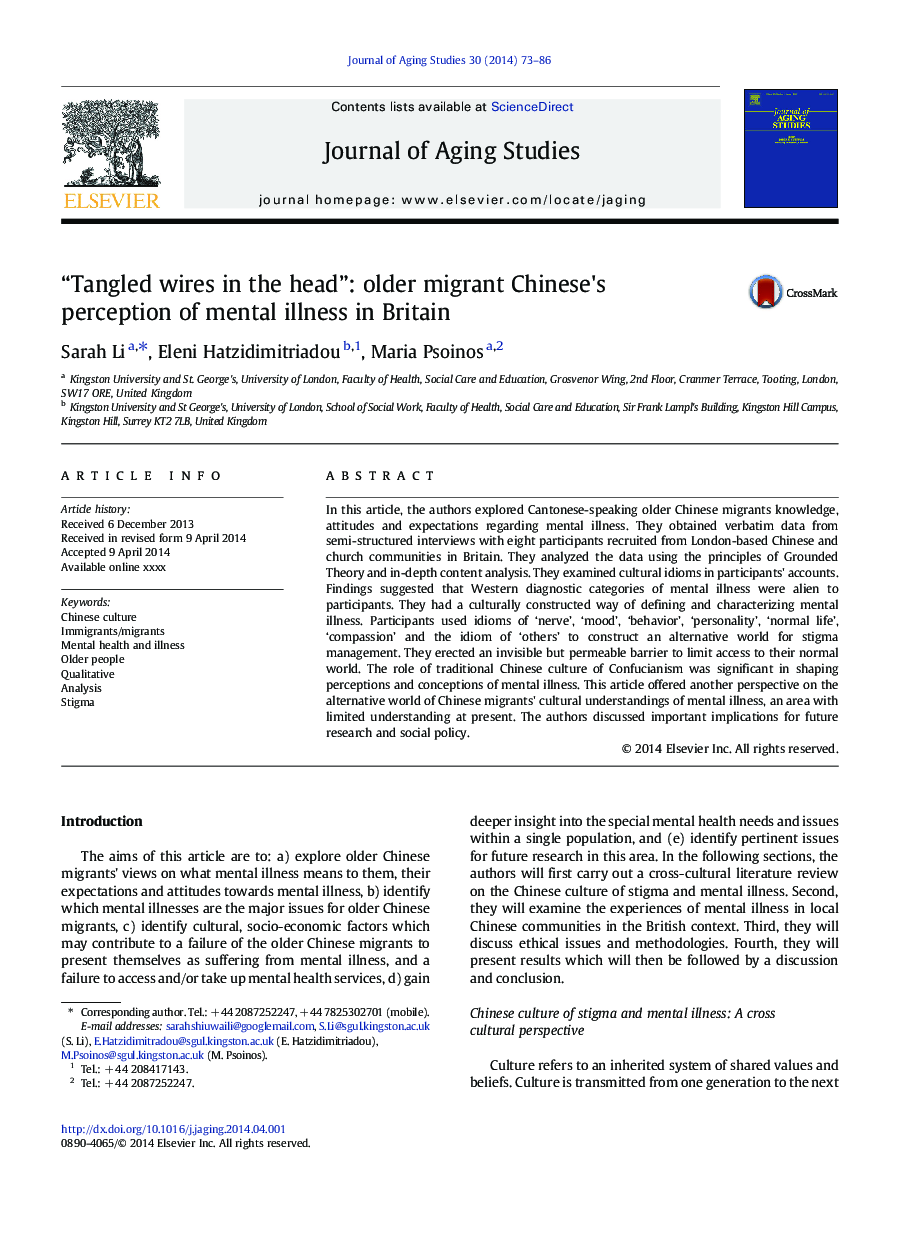| Article ID | Journal | Published Year | Pages | File Type |
|---|---|---|---|---|
| 7517747 | Journal of Aging Studies | 2014 | 14 Pages |
Abstract
In this article, the authors explored Cantonese-speaking older Chinese migrants knowledge, attitudes and expectations regarding mental illness. They obtained verbatim data from semi-structured interviews with eight participants recruited from London-based Chinese and church communities in Britain. They analyzed the data using the principles of Grounded Theory and in-depth content analysis. They examined cultural idioms in participants' accounts. Findings suggested that Western diagnostic categories of mental illness were alien to participants. They had a culturally constructed way of defining and characterizing mental illness. Participants used idioms of 'nerve', 'mood', 'behavior', 'personality', 'normal life', 'compassion' and the idiom of 'others' to construct an alternative world for stigma management. They erected an invisible but permeable barrier to limit access to their normal world. The role of traditional Chinese culture of Confucianism was significant in shaping perceptions and conceptions of mental illness. This article offered another perspective on the alternative world of Chinese migrants' cultural understandings of mental illness, an area with limited understanding at present. The authors discussed important implications for future research and social policy.
Related Topics
Health Sciences
Medicine and Dentistry
Geriatrics and Gerontology
Authors
Sarah Li, Eleni Hatzidimitriadou, Maria Psoinos,
